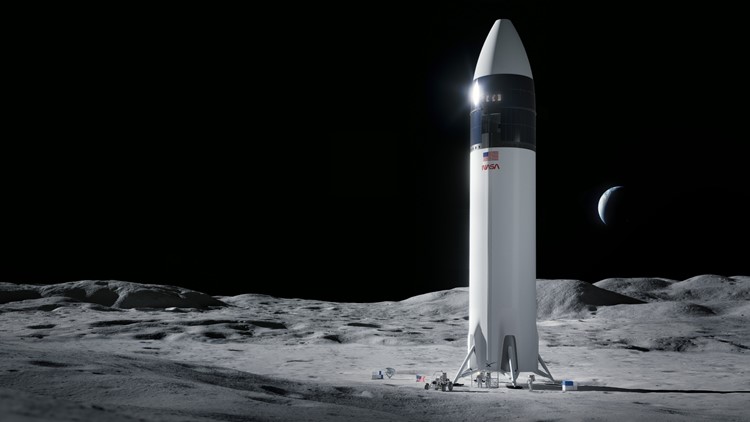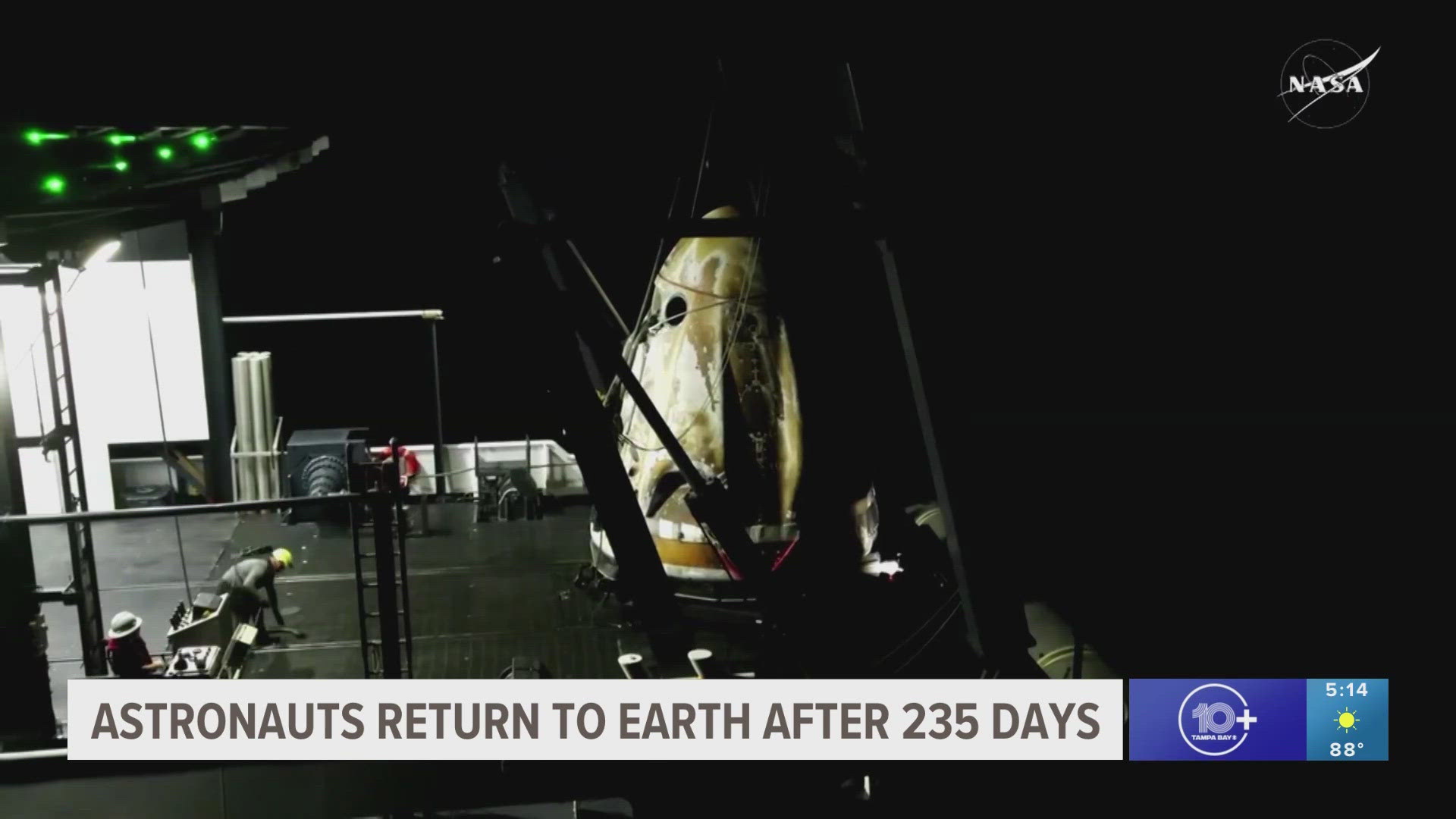NASA is pushing to land the first woman and the next man on the surface of the Moon by 2024-- and it looks like they'll get a little help from Elon Musk.
The space agency announced Friday, out of three private companies that submitted proposals to design and develop a human landing system for its Artemis program, NASA selected the ever-familiar SpaceX for the job.
Under the contract, SpaceX will build the spacecraft that will carry astronauts to the lunar surface for the first time in about 50 years when astronaut Harrison Schmitt became the last U.S. man to step foot on the Moon in 1972.
The Artemis program is inspired by NASA's Apollo program and how it proved it was possible to land humans on the Moon and return them to Earth safely. In Greek mythology, Artemis is the twin sister of Apollo.
RELATED: Meet the astronauts: NASA, Pence name first group of Artemis astronauts for next moon missions
RELATED: It’s been 50 years since the Apollo 13 crew safely returned to Earth. Here’s how they did it
SpaceX's proposal was for a variation of its Starship prototype, a fully integrated lander that will use the company's Super Heavy rocket.
The award value of the contract comes to a total of $2.89 billion, according to NASA. The company was competing against Blue Origin and Dynetics for the contract.
And if the name "Starship" sounds familiar, that's because it is. It's the model that SpaceX has been performing high-altitude flight tests of in Boca Chica, Texas.
The only issue is, while successful in providing data, they usually go up in flames.
RELATED: 4 women spearheaded building the rocket stage set to launch the first woman to the Moon in 2024
When asked about the spacecraft's current situation, NASA leaders made it clear that, at this point, the progress with Starship looks "good" and that there will be several tests, including a Moon test, ahead of astronauts ever entering the lander.
“We always fly when it’s safe," Kathy Lueders, associate administrator for NASA’s Human Exploration and Operations Mission Directorate said.
It's a sentiment acting NASA Administrator, Steve Jurczyk echoed, sharing that the space agency will not compromise the safety of its astronauts just to meet a certain launch timeframe.
According to a press release, the agency's Space Launch System rocket will launch four astronauts aboard the Orion spacecraft for a multi-day journey to lunar orbit. From there, two crew members will transfer to the SpaceX human landing system for the final leg of their journey to the Moon's surface.
NASA says the history-making duo will explore for about a week before hopping back into the lander, returning to Orion, and re-entering Earth's atmosphere.
“By taking a collaborative approach in working with industry while leveraging NASA’s proven technical expertise and capabilities, we will return American astronauts to the Moon’s surface once again, this time to explore new areas for longer periods of time," Lisa Watson-Morgan, program manager for HLS at NASA’s Marshall Space Flight Center said, in part.
SpaceX's design is a fully reusable, single-stage solution that provides extensive volume for the crew and includes two airlocks, according to NASA. The spacecraft is also set to perform an uncrewed test landing and a space propellant transfer demonstration.
According to NASA, the human landing system will allow for the exploration of new technology that could help them land on Mars and other planets in the future.
“This is an incredible time to be involved in human exploration for all humanity," Jurczyk said about the agency's latest milestone.
As NASA moves into the "Option A" period of performance, agency leaders are looking forward to crafting a vital part of its deep space exploration plan.
“NASA’s Apollo program proved it is possible to land humans on the Moon and return them safely to Earth. But when NASA returns to the Moon with the Artemis program it will go in a way that reflects the world today," Lueders said.
While SpaceX is the sole contract winner for now, due to an "overall strategy" and budget constraints, NASA said it will start to have industry discussions about how to further develop additional competition on a future services contract.
The specifics of that contract are not yet known.
What other people are reading right now:
- Police: 8 killed in Indianapolis FedEx building shooting, others being treated at hospitals
- Baby toys at Target, Walmart recalled for potential choking hazards
- Guitarist of band formed in Tampa becomes 1st person to plead guilty over Jan. 6 Capitol riot
- Police: Man charged with grand theft auto after stolen Ferrari chase
- Did you lose your vaccine card? Here's what to do next
►Breaking news and weather alerts: Get the free 10 Tampa Bay app
►Stay In the Know! Sign up now for the Brightside Blend Newsletter



